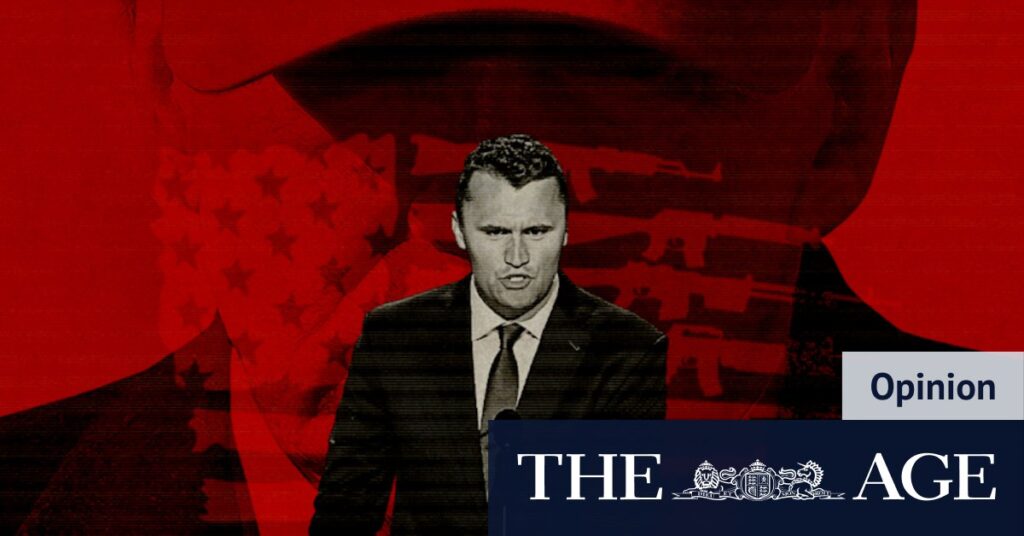
In the wake of Charlie Kirk’s recent murder, a complex conversation has emerged about how we remember individuals who have left a controversial legacy. The notion of not speaking ill of the dead is being challenged as society grapples with the impact of Kirk’s divisive rhetoric and actions.
Charlie Kirk, a prominent figure in American politics, was known for his strong views as a white Christian nationalist. He founded Turning Point USA, an organization that has been at the forefront of promoting right-wing ideologies. Kirk’s life and work have sparked significant debate, particularly following his untimely death.
The Legacy of Controversy
Kirk’s influence was marked by his outspoken stance on various social and political issues. He was a vocal critic of immigration, feminism, and abortion rights, often using inflammatory language to express his views. His support for the “Great Replacement” theory and claims of a stolen 2020 election further fueled division.
Many have criticized Kirk for perpetuating hate and division, particularly against minority groups. His opposition to progressive ideals and his role in fostering a culture of intolerance have left a lasting impact on American society.
Challenging the Silence
The traditional adage of not speaking ill of the dead is being questioned in light of Kirk’s polarizing legacy. Critics argue that avoiding honest discussions about his actions and beliefs only serves to sanitize his impact and prevent meaningful dialogue.
Journalist Kyle Spencer, author of “Raising Them Right,” highlights the reluctance of American media to critically assess Kirk’s rhetoric.
“When Kirk died, the American media behaved as if they were polite guests at a wake, rather than journalists whose job it is to honestly assess someone who had very hateful rhetoric and who held opinions that were very cruel,”
Spencer observed.
The Role of Media and Political Bias
The media’s handling of Kirk’s legacy has been criticized for its lack of depth and honesty. The Washington Post’s recent firing of columnist Karen Attiah, allegedly over her social media posts about gun control following Kirk’s murder, underscores the challenges faced by journalists in navigating politically charged topics.
Attiah’s dismissal has been described as a violation of journalistic standards, raising concerns about the influence of political bias in media coverage.
“They rushed to fire me without even a conversation. This was not only a hasty overreach, but a violation of the very standards of journalistic fairness and rigor the Post claims to uphold,”
Attiah wrote on Substack.
Political Violence and Accountability
The conversation around Kirk’s legacy also touches on the broader issue of political violence in the United States. According to the Cato Institute, right-wing extremists have been responsible for a significant portion of politically motivated murders in recent decades.
“Right-wingers are the second most common motivating ideology, accounting for 391 murders and 11 per cent of the total,”
the Cato Institute reports. This statistic highlights the need for a more nuanced understanding of the factors contributing to political violence.
Moving Forward: A Call for Honest Dialogue
As the conversation around Charlie Kirk’s legacy continues, there is a growing call for honest and open dialogue about the impact of his beliefs and actions. This includes acknowledging the harm caused by his rhetoric and the need for accountability in public discourse.
Spencer emphasizes the importance of confronting uncomfortable truths, even in the face of potential backlash.
“The hesitation to go for the jugular ended up really offending the folks that Kirk considered enemies,”
she noted, highlighting the need for media and society to engage with difficult topics.
Ultimately, the legacy of Charlie Kirk serves as a reminder of the power of words and the responsibility of both individuals and the media to foster constructive conversations that promote understanding and reconciliation.





